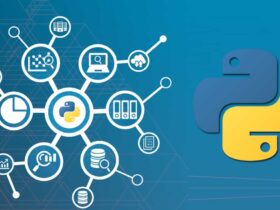Five Ways Data Science Can Boost E-Commerce Marketing
In today’s era, the E-commerce industry has become a vital medium to promote brands worldwide. E-commerce is no longer restricted to online retailers but has now well-spread companies that provide services on the internet. With the rapid growth of the E-commerce industry, we need proper application of data science for better marketing solutions and more profit for both shoppers and businesses alike.
When it comes to e-commerce, data is crucial to making decisions on the right products and offers. Using big data and machine learning techniques, data scientists can explore the entire data set to discover patterns that may help in decision-making. This blog highlights various applications of data science in the e-commerce industry and also provides solutions related to topics like:
Data Science is the hottest trend in the e-commerce industry. It has fueled online retailing by enabling businesses to gather data from e-commerce websites, analyze it and apply machine learning algorithms to predict the future behavior of customers.
Several applications are being used in today’s e-commerce industry, making it a growing opportunity for data scientists. Below I have provided some applications that are helpful for data scientists concerning E-commerce Industry:
What is data science?
Data Science is the study, collection, and analysis of large data sets. It involves computational models, statistical models, and methods. Data scientists are adept at gaining insights from huge sets of data, building predictive models from those insights, and then incorporating their results into business processes to achieve better decision-making. Being able to analyze data means having the information required to make informed decisions that can positively impact your business.
Why is it important for e-commerce companies to use data science?
E-commerce companies use data science to help them predict what products people will buy online. This will allow them to make better decisions about which products are worth developing or selling more of. This way, they can ensure that their customers have what they want when they need it most: at the best possible price!
In the e-commerce industry, data scientists are often called upon to predict product sales based on user behavior. They might look at how long users have been on a website or shopping site and use this information to determine what products they might buy next. They could also look at user behaviors across multiple sites and see if there is any correlation between different sites—for example, do people who visit one site tend to buy more clothes than those who visit another?
If you want to start your career in data science, the first thing you’ll need is a good understanding of how to use the tools and techniques commonly used in data science.
The complete training can be found in a data science course offered by Upshot. This complete data science Bootcamp will assist become a pro data scientist.
Inventory management:
Using data science, established e-commerce firms and startups can better manage their inventories. Indirectly, this helps companies avoid wasting money on things that aren’t selling well and don’t require restocking. Since e-commerce organizations deal with thousands of goods and a million consumers every day, advanced data science is essential for precise inventory management and forecasting of future needs.
Retailers must be able to stock the correct items in the proper amounts so that they can meet client demand as it arrives. A comprehensive analysis of the inventory and supply chains is required to attain this goal.
In-depth data analysis using powerful machine learning algorithms uncovers patterns and connections among purchases. A plan for increasing sales and ensuring on-time delivery and inventory management is then developed based on the data analyzed by the analyst.
Recommendation engines:
Recommendation engines are the most significant weapons in a retailer’s armory. Retailers use these engines to encourage customers to buy the goods. It’s a win-win situation for merchants and consumers when they make suggestions for customers.
Such as Amazon and Flipkart.
Machine learning and deep learning algorithms make up the engines, which are supposed to keep track of individual consumers’ habits, analyze their consumption patterns, and make recommendations based on this information.
The reason Netflix suggests movies and TV shows to you is because they know what you like!
If your previous searches and purchases are linked to Amazon, you can get personalized product recommendations and discounts. Simply because who can say no to a deal on something they’ve always wanted, especially when it comes with a price reduction?
Complex data filtering and reading are involved in this process, which is then sent via a machine learning algorithm.
Customer Experience and Customer Service:
Data science improves the customer experience by automating several functions and making everyday tasks easier with the help of feedback and analytics. These solutions might range from automated experiences to improved navigation.
According to surveys, almost 80% of customers believe that a positive customer experience is a key factor in their decision to return to a certain website. In addition, as many millennials and Gen Generation z have discovered things via social media sites like Instagram. Establishing preferences via social media may help enhance customer service and suggestions.
ML is particularly helpful in customer service since it leads to improved IVR and chatbot services that help resolve customer concerns more efficiently over time. Sentiment analysis is a highly effective tool for analyzing customer experience and retaining customers.
Price Optimization:
Selling a product at a price that both the buyer and seller benefit from is a real challenge. In order to maximize profits, the pricing must reflect not only the expenses of production but also the ability of the customer to pay for the product in question, as well as competitive prices. Machine learning algorithms are used to determine all of this. The system analyzes various data points, including price flexibility, consumer location, specific customer purchasing habits, and competitor pricing. It then comes up with the best possible pricing for all parties.
Merchandising:
Merchandising is an important facet of every retail operation. The objective is to come up with methods that improve sales and marketing of the product.
Merchandising helps customers make decisions based on their visual perceptions. Items should be switched in order to maintain a constantly changing selection. Use eye-catching packaging and branding to attract customers. Customers are prioritized based on seasonality, relevance, and trends via merchandising algorithms that analyze data.
Lifetime value prediction
For an organization, customer lifetime value measures how much revenue a customer brings in throughout their business relationship. Two important customer lifetime prediction approaches are developed by taking into account direct customer purchases; historical and predictive.
All of the predictions are based on historical data up to the most recent transactions. In most cases, the algorithms gather, categorize, and clean data on client preferences, spending, recent purchases, and behavior as input. After the data is analyzed, a linear representation of the potential worth of the current and potential consumers is received. The system also detects connections between the clients’ qualities and their decisions.
Good Read: The 10 Most Used Programming Languages for Data Science
Conclusion:
In a world with a tremendous amount of competition, data science applications offer a way for businesses to differentiate themselves by providing value to their customers. Data scientists can help e-commerce businesses understand their customers better and ultimately offer them products and services that the customers want and are willing to pay for. In other words, one of the best things about data science applications is that they serve as a tool for bringing together. All of your marketing efforts into a single strategy, thus making your business more profitable in the long run.
- Data science is one of the most groundbreaking advancements in E-Commerce.
- Data scientists are in charge of extracting actionable insights from raw data.
- This allows companies to further improve the development and functioning of their platforms, apps, and websites.
Data Science innovations in the E-Commerce industry will help retailers to provide us with a better experience. And we’ll feel the positive impact of data science on the customer’s journey. If you’re interested in how big companies like Amazon, Alibaba, and Flipkart are trying to improve online shopping experiences through data science, read on.
The explosion of the E-commerce industry has occurred because of the exponential growth of Internet penetration in major economies. The next wave of growth in the E-commerce industry would come from mobile commerce. Which is happening at a phenomenal rate owing to revolutionary innovations in mobile computing and Internet technologies globally.





